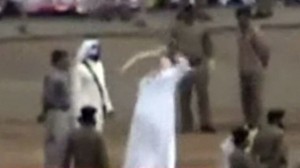By Hannah Stewart
Impunity Watch Reporter, Africa
BAMAKO, Mali — Mali’s private media launched a news strike after an editor was arrested for publishing a letter about the substandard conditions of Malian soldiers fighting Islamist militants in the north.

Agents from Mali’s intelligence service arrested Boukary Daou, editor-in-chief of Le Republican newspaper, and took him from his home on March 6. This followed soon after his newspaper published a letter from an army officer denouncing Captain Amadou Haya Sanogo’s recently-decreed salary of $8,000 per month.
Sanogo’s salary is incredibly high salary for anyone in the impoverished country. The letter contends that the salary — as much as 26 times what Sanogo earned before last year’s coup — serves as an incentive for future coups.
The letter further threatened that if Sanogo’s salary is not reduced, soldiers deployed in northern Mali’s will refuse to fight. Currently, the average salary of an enlisted soldier is just $100 a month, which is 80 times less than what Sanogo’s salary.
Sanogo seized power a year ago last March. Just weeks later, he was forced to relinquish control due to international sanctions. Sanogo managed to negotiate a “golden parachute” before resigning, including the salary of an ex-head of state. Despite officially stepping down, many observers contend that Sanogo continues to pull the strings in government, as Daou’s arrest evidences.
President Dioncounda Traore spoke to reporters at a stop in Dakar, Senegal, and defended his administration’s decision to arrest Daou. President Traore assured reporters that if Daou is innocent that he will be freed. Moreover, President Traore condemned the letter published in Le Republican as subversive and aimed to demoralize the nation’s troops during wartime.
Sources in the capital of Bamako, say that approximately 40 periodicals are published weekly; however, none appeared on newsstands on Tuesday morning. Furthermore, the 16 local private FM radio stations are either silent or only playing music.
According to a statement from the country’s press association, the media strike “will continue until Boukary Daou is freed.”
“Mali is in a state of emergency. We all need to remember this. We are in a state of war, and we cannot allow this kind of thing,” President Traore said. “If he is guilty, he will need to answer to the courts. If he is not, there’s no reason he’ll be kept in prison.”
Following Sanogo’s coup last year, various rebel groups allied with al-Qaeda forces in northern Mali have sent the the country and the region careening into crisis. Since January, French troops have joined with Malian and regional soldiers to push back against the northern rebels.
For more information, please see:
BBC News – Mali Media Strike Over Editor Boukary Daou’s Arrest – 12 March 2013
Bloomberg – Media in Mali Protest Journalist’s Arrest with National Strike – 12 March 2013
Financial Times – Mali Media Strike Against Editor’s Arrest – 12 March 2013
NPR – Mali Media Outlets Go Silent Over Editor’s Arrest – 12 March 2013


